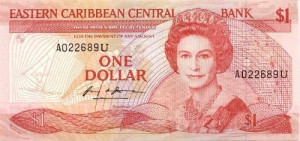
You can spend a lot of these…
These days, traveling always seems to cost more than you think it will — or should.
Expenses add up, even after you’ve bought the airline or cruise tickets, perhaps pre-paid your hotel or rental car bills, or even booked an “all-inclusive” vacation.

And these…
It’s those little “extras” that can be killers: the pricey cups of coffee in that chic cafe, the seemingly irresistible shopping finds, the spur-of-the-moment decisions to splurge on…whatever.
And yet, those splurges can amount to some of the most memorable moments of a trip.
So, what to do to ensure you don’t return home from a vacation stressed out by credit card debt and a dwindling bank balance?
This guest post by Jesse Miller, the first in a series of how to travel on the cheap from jenreviews.com, offers some answers — or will at least get you thinking about how you can cut down on unwanted travel costs.

And these before you know it. Photos by Clark Norton
Some of the tips in this guide are general, some more specific, and all are gathered from the experiences of frequent travelers interviewed for the posts.
Today, Jesse starts with some broad planning tips. Future posts will feature tips on finding cheap(er) transportation, accommodation, food, dining, money management, safety, and more.
A great trip requires extensive planning. Here are a baker’s dozen of travel-pro tips:
1. First things first
Start with the video above before diving into any concrete details of your trip, as it has a lot of great pre-planning tips that will save time, money, and hassles in the long run.
2. Take notes.
Before scheduling travel dates and booking reservations, make sure you have a notebook to record travel information as you move through the planning process. A journal is a great tool for writing notes about places to see and things to do while on vacation. You can also print out confirmation emails and pertinent travel documents that are normally hard to keep up with and store them in this journal.
3. Look for the most authentic experience within your means.
Be honest about what you can responsibly afford while traveling. Before planning anything, sit down and plan a general budget for your trip. This doesn’t have to be too specific yet—instead, determine the maximum amount of money you want to spend on the trip overall. As you choose this amount, make sure that you’re leaving yourself enough financial cushioning for when you return. Once you know this general budget it will be easier to know what corners you need to cut in order to make the trip happen.
4. Plan the heavier expenses first.
Because they’re typically the most expensive purchases you’ll make when planning, make sure start your planning with transportation and lodging costs. Research in these areas will often help you determine if the trip is financially possible or not.
Pro-tip: Figure out your flights first. Look at it this way: you have to fly to Bali from New York, but you don’t have to stay in a five-star resort while you’re there. Once you know what it will cost to get to and from your destination, look into housing options that are more in line with your personal budget.
5. Be flexible with your travel dates.
Be willing to negotiate when planning the departure and return dates. This can be hard to lock down, especially if you have a busy job and other commitments. If you don’t have these obligations, though, go with the deals! There are often several cheaper options available if you’re willing to leave a couple days earlier or later than your original plan. It’s best to start this process by determining a general month or season that you would like to travel. Once this is decided, explore this broad window until you find the cheapest options available.
6. Be open to a slightly different destination.
If you’re having trouble making your trip work financially, look into traveling somewhere that’s near where you want to go. Because tourism and destination popularity largely determine the cost of your trip, be open to staying somewhere close to your desired destination instead of within the city itself. By flying into lesser-known locales and traveling into the city for the day, you can cut a lot of the cost that you would normally pay and still have the experience you want to have.

You might consider an alternative destination to New York or Florida; Utah is beautiful but less pricey. Image from VisitUtah.com
7. Go all-in.
All-inclusive deals save you time by covering food, entertainment, and housing all in one fell swoop. This makes it easy to enjoy your trip without worrying about the ramifications of exceeding your budget. For example, Disney offers deals that provide guests with an on-resort room, daily park passes, and a customizable meal plan. This type of plan keeps guests covered on all the basic necessities while giving them enough room to have a personalized and rewarding vacation experience.
Pro-tip: On the other hand, these deals can easily cost an arm and a leg. Make a list of all the amenities offered in the all-inclusive plan and ask yourself if you’ll realistically take advantage of them all. If not, it might be better to pay for the basic .
8. Make your own all-inclusive deal.
While it is primarily used as a tool for buying and flight tickets, Orbitz (and similar travel planning websites) can be used as an all-in-one service for securing lodging in the area you’re traveling to. After booking a flight, Orbitz will provide several cheap hotel and car rental suggestions, streamlining the process and making the planning more beneficial for the user. If you’re not picky about your lodgings and prefer simplicity in planning your trip, Orbitz can be a great help to you.
9. Know where you’re going.
Make sure to research local customs and behaviors before booking your trip to make sure that you will be comfortable in a completely different environment. If the natives speak a language foreign to you, it might be worth learning some common phrases like ‘Where’s the bathroom?’ or ‘How much does this cost?’ Because it can be hard to adapt and function in a different culture (especially when there’s a language barrier), it’s extremely important to explore these possibilities before you arrive.
10. Be adventurous.
Regardless of where you visit, explore your nearby options to see if cheap travel is possible for a day-trip to a nearby city or country that interests you. Taking a bus to Cologne from Amsterdam, for example, is a relatively quick and cheap trip by bus. These visits break up the routine of your main destination and add another layer to your overall experience. As long as you’ve got the important travel documents (like your passport) that you’ll need to move from place to place, it’s relatively easy to get a multi-cultural experience if you plan for it.
11. Cash in old rewards…
If possible, redeem frequent flyer miles or other such rewards when booking your flights. This is like a past version of you paying it forward for the trip you’re planning. Besides, who doesn’t love a free trip?
12. …and build up new ones.
If you’ll be frequently traveling by plane, look into getting a travel rewards credit card. Not only will this help you rack up frequent flyer miles for your next trip, you’ll also have a safeguard in case you run out of money or are having trouble using your normal debit card.
13. Do your research.
Traveling takes a lot of careful planning.
Looking to bring back the lost element of wonder to traveling, the Atlas Obscura documents hidden landmarks and monuments that are essential additions to your trip. Best of all, you can enjoy the benefits of this book longer after you return by using it to whet your curiosity and cure your wanderlust.
Pro-Tip: While the Atlas Obscura is chock-full of general information for several popular travel destinations, it would most likely be more beneficial to find a more specific atlas or travel guide based upon the area you will be visiting if you’re looking for a more extensive database of information.
Now comes the fun part — planning your trip!
Next up in the budget travel guide — Tips on Finding Cheap Transportation.
Dear Readers: My new guidebook, 100 Things to Do in Tucson Before You Die (Reedy Press, 2017) is now available for purchase. For those outside the Tucson area, where it’s available at Barnes & Noble, Antigone Books and other bookstores, you can go to the book’s sale page at amazon.com and order it. Don’t forget to write a review!
Or, if you’d rather support clarknorton.com than Jeff Bezos, you can order directly from me at paypal.me/clarknorton; price of $19.35 includes sales tax and shipping. Be sure to send me an email at clark@clarknorton.com with your name and shipping address. We also accept major credit cards. Thanks!
COMMENTS:
I really like your idea to be flexible with our travel dates to help us find the cheapest options. My husband and I are interested in booking a relaxing private cabin rental on a wildlife refuge since we both need some time to wind down from work. Thanks for teaching me these methods to stay stress-free on the trip without spending too much money! — Rebecca Gardner
bluebonnetcabins.com/wildlife-sanctuary
rgardner2779@gmail.com












5 Responses to How to Travel Cheaply: 13 Planning Tips